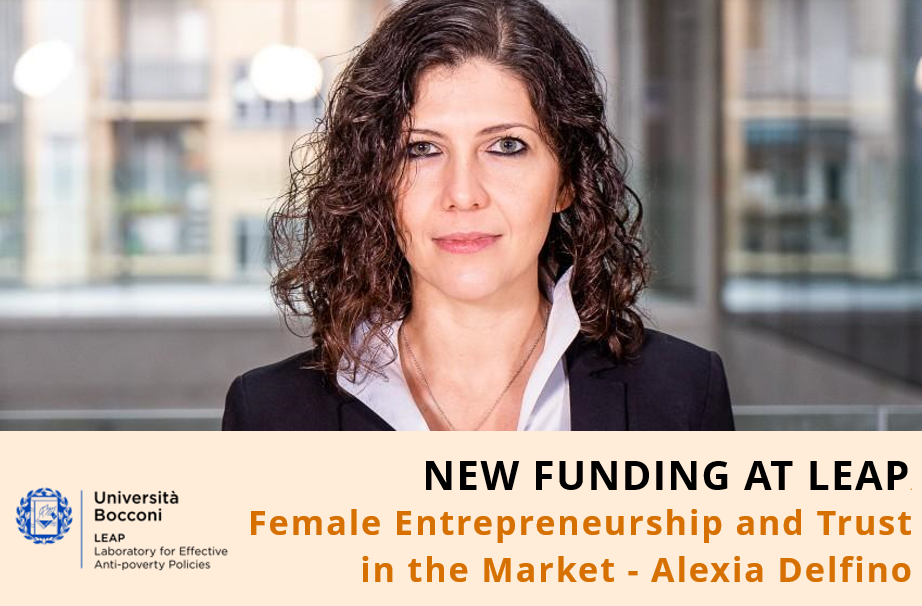New funding at LEAP!

All over the world, women are less likely than men to become entrepreneurs. Moreover, female entrepreneurs tend to cluster in industries with lower returns, and which are female dominated. Do women face expropriation in male-dominated sectors, and therefore self-select into working with other women? Alexia Delfino (LEAP, Bocconi Laboratory for Effective Anti-poverty Policies), together with Nava Ashraf (London School of Economics) and Edward Glaeser (Harvard University) have won an Exploratory Research Grant within the Private Enterprise Development in Low-Income Countries (PEDL) program for their project called Female Entrepreneurship and Trust in the Market.
The project was first outlined in a 2019 working paper by the same authors. This paper argued that women are more willing to start businesses when they have both formal legal protection and informal bargaining power and proposed a theoretical model of entrepreneurship that predicts female businesses will interact with men only when external authorities enforce contracts fairly, and when social norms empower female bargaining. The reasoning is simple: commerce requires trust, but trust is difficult when one group (typically women) consistently fears expropriation by another (typically men). If men have a comparative advantage at violence and there is little rule-of-law, then unequal bargaining power can lead women to retreat into low-return industries and shun entrepreneurship altogether.
The experiment presented in the working paper, conducted in Lusaka (Zambia), involved a business game where some small-scale entrepreneurs had the possibility to invest in a joint opportunity, and were offered – in a randomized way - gender-neutral access to a contract-enforcement institution. This institutional protection was provided either by a formal authority, the Small Claims Court, or by an informal one, the so-called “Market Chief” – two actually existing institutions. Results suggested that the protection offered by the Market Chief disproportionately benefit women. Interpreted through the lens of the model, when women have access to institutional support - and this support is considered unbiased against women - the fear of expropriation is reduced or disappears. Crucially, women’s higher investment leads a larger economic pie, with positive consequences for both women and men.
The current project is intended to expand on the findings of the working paper in order to provide additional insights on the effects of gender-related expropriation and on how to mitigate it. More precisely, the authors seek to provide field evidence that asymmetries of power between men and women discourage female business owners from engaging in profitable opportunities that require collaboration with men, and aim to compare the effect on business outcomes of having access to an institution which is potentially biased against women with one which is blind to gender (and thus cannot be biased in judgement).
This will involve more realistic experimental tasks involving real-life small-scale entrepreneurs in Lusaka in larger numbers. The aim is to test different channels through which the local institutional support offered by Market Chiefs may disproportionately help women take advantage of linkage opportunities with other businesses.
“This evidence is crucial because policy recommendations depend on the exact way in which institutions affect women’s outcomes, as well as women’s awareness of the institutional support options they have,” says Alexia Delfino. “Our evidence will then generate important insights about possible institutional reforms, but also for development policies that try to promote business growth. In contexts with asymmetric power between men and women, policies should not overlook the importance of the institutional environment where women operate.”
The PEDL program is coordinated by the Centre for Economic Policy Research in partnership with UKaid, the British government’s overseas aid agency.

